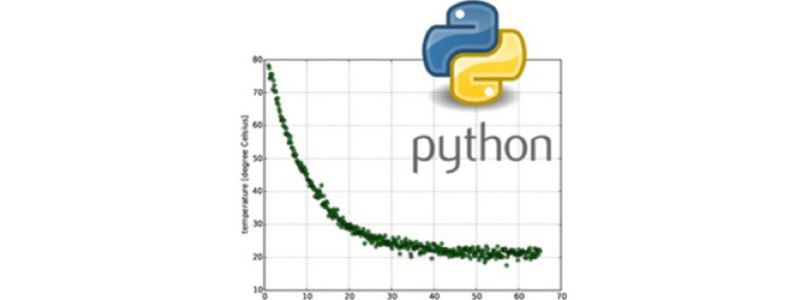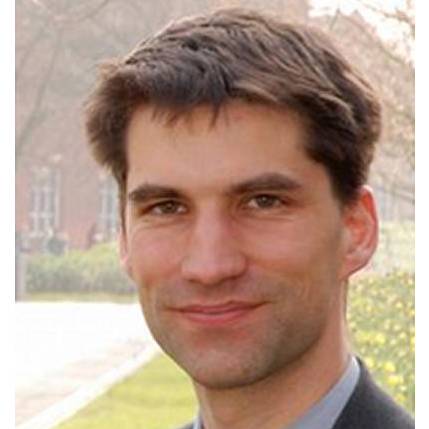The course is especially useful as the trainer, Dr. Christoph Rosemann, is a trained physicist who also works at DESY and is keen on supporting researchers to cope with specific computational challenges in their field of research.

Building on Part 1, this course covers additional aspects:
Aspects (1) to (3) are covered in the beginning of the course. Part (4) is delivered at the end of the week, and can be omitted if not relevant to the participant.
Anticipated topics:
Register here for part 2 (deadline is Wednesday 18 February 2026)

DKRZ and UniHH are hosting the next 4.5 days '**Python Course for Geoscientist** s' as a virtual workshop from **02\. to 06. February 2026**.
This course is offered to our DKRZ users and project partners and is particularly designed for **beginners** with little or no knowledge of Python. In each section of the course, participants can work interactively on the
tasks in order to better understand what they have learned.
Course content: Python core language, NumPy, Xarray, Matplotlib, Cartopy
\- **For those interested, we offer a short introduction to Linux and Jupyterhub on Monday, 02.02.26**
\- **The actual 4 days Python course then starts on Tuesday, 03.02.26**
This course will take place online via videoconference. Register now
Institutions

Lecturer: Hans Fangohr
Hands-On exercises: Hans Fangohr, Henning Glawe and Heiko Appel
The course has been designed for scientists and engineers to teach the practical programming skills that are relevant for modern computational science. The module does not assume prior programming knowledge of participants. The module uses hands-on activities for all participants to exercise and experiment with the taught material. The material covers a wide spectrum of skills that are advantageous for scientists who need to handle data - be it from experiment or simulation – and provides a basis for self learning or directed learning of more specialized topics at a later stage.
Topics include:
- Introduction to data types in Python
- Control flow
- Name spaces
- Input/Output
- Higher order functions
- Main programming paradigms
- Important Python modules for computational science (numpy, scipy, pandas, sympy)
- Data visualization with matplotlib

Dr. Behnam Yousefi, Institute of medical systems biology, UKE
This workshop is open to students, researchers, and clinicians keen to learn the essentials of machine learning and implementing it via Python. The aim of the course is to provide a comprehensive map of machine learning (and deep learning) methods with no specific background requirements. A little background in python can be helpful, though. We will focus on fundamentals of machine learning, validation methods, linear and nonlinear models, and feature reduction. The students will also get familiarized with the Python packages of Sci-kit Learn and Pytorch. The workshop will be in presence and therefore each participant should bring their own laptop (no ipads).
Topics
Types of machine learning: supervised and unsupervised
Validation metrics and cross validation
Introduction to linear and nonlinear models include: Linear regression, Random forest, support vector machines, deep neural networks.
Feature reduction.
Regularization.

LangRS is a Python library designed to enable the use of natural language processing (NLP) and Remote Sensing (RS) imagery segmentation, it is built on top of Segment Anything Geospatial (SamGEO) and deploys techniques that improve upon it. This hands-on workshop introduces LangRS, showcasing its potential to optimize zero-shot segmentation potentials through the pre-processing and post-processing techniques.
Participants will explore how to use LangRS to segment RS imagery. The workshop includes interactive demonstrations and practical exercises covering:
By the end of the workshop, participants will gain practical experience in using LangRS to enhance geospatial data analysis workflows, making geospatial insights more accessible and actionable.
Target Audience
This workshop is ideal for geospatial data scientists, remote sensing analysts, computer vision researchers, and professionals interested in integrating AI with geospatial data.
Prerequisites
Institutions


Target group: Python beginners
In today's world, there is usually no way around the Python programming language in the geosciences. However, learning Python on your own is associated with many difficulties and leads only to unsatisfactory results, which is why this course was developed especially for beginners.
This workshop will take place via Zoom videoconference.
We only offer a limited number of 60 course seats to ensure there is enough time to help with problems. A few additional seats for the waiting list will be taken in the registration which does not guarantee participation.
The course is only offered to our DKRZ users and project partners who are just starting to work with Python.
Notes:
Registration will open on August 18, 2025 at 10 am
Institutions

Lecturer: Hans Fangohr
Python for Computational Science Part 1
The course has been designed for researchers to learn practical programming skills that are relevant for use of data processing, data science and computation in domain specific contexts. The module does not assume prior programming knowledge of participants. The module uses hands-on activities for all participants to exercise and experiment with the taught material. The course introduces skills that are advantageous for data handling - be it from experiment or simulation – and provides a basis for self learning or directed learning of more specialised topics at a later stage.
Part 2 of the course provides a deeper look into Python and introduces a wider range of libraries.
Anticipated topics:
Details here
Register here for part 1 (deadline is Sunday 26 January 2025)

Introduction to Python for Computational Science (Part 1)
The course has been designed for researchers to learn practical programming skills that are relevant for use of data processing, data science and computation in domain specific contexts. The module does not assume prior programming knowledge of participants. The module uses hands-on activities for all participants to exercise and experiment with the taught material. The course introduces skills that are advantageous for data handling - be it from experiment or simulation – and provides a basis for self learning or directed learning of more specialised topics at a later stage.
Part 2 of the course provides a deeper look into Python and introduces a wider range of libraries.
Anticipated topics:
Register here for part 1 (deadline is Wednesday 4 February 2026)

Lecturer: Hans Fangohr
Building on Part 1, this course covers additional aspects:
Aspects (1) to (3) are covered in the beginning of the course. Part (4) is delivered at the end of the week, and can be omitted if not relevant to the participant.
Anticipated topics:
Details here
Register here for part 1 (deadline is Sunday 26 January 2025)

Scientific Support Unit researching the use of computation to accelerate and support research.

Universität Hamburg
Adeline Scharfenberg

Universität Hamburg
Adeline Scharfenberg

Universität Hamburg
Adeline Scharfenberg